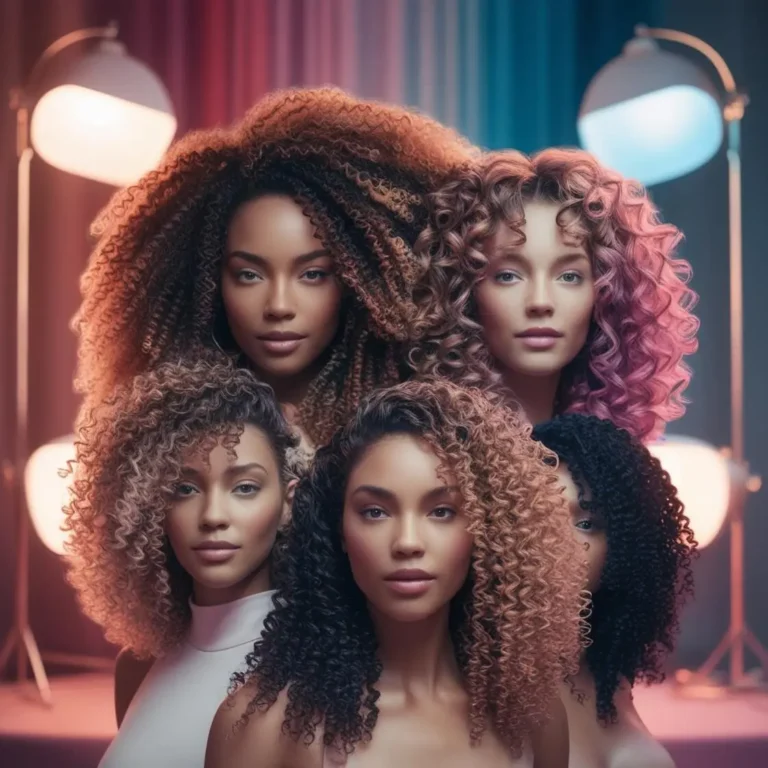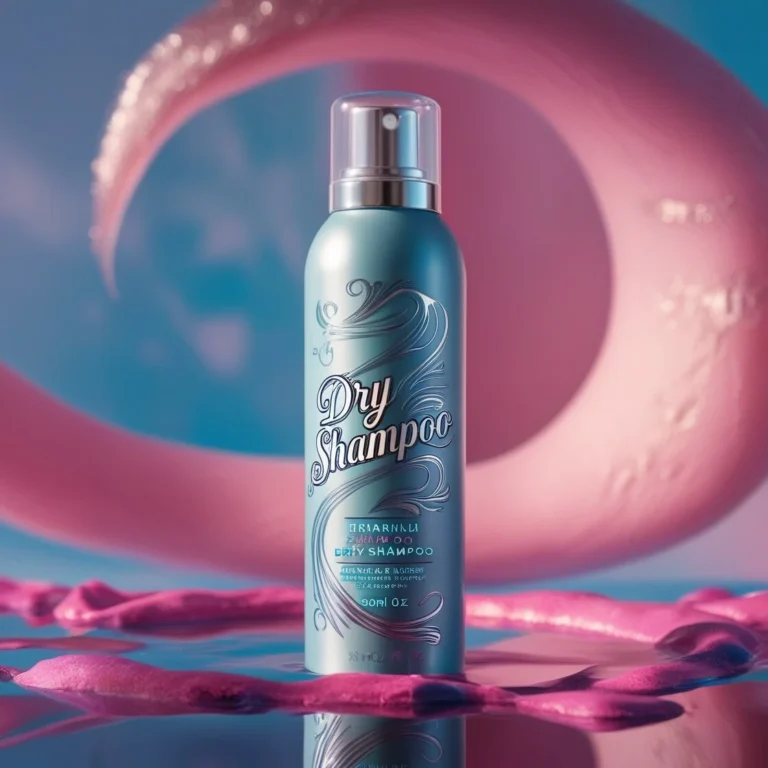Hair conditioner is a staple in many people’s hair care routines. Yet, the question persists: is hair conditioner really necessary? While some individuals may choose to forgo this product, understanding the benefits of conditioner can significantly influence your hair health. In this article, we will delve into the importance of hair conditioner, its benefits, and how it can transform your hair care routine.
Index
What is Hair Conditioner?
Hair conditioner is a hair care product designed to enhance the texture and appearance of hair after washing it with shampoo. While shampoo primarily cleans the hair and scalp by removing dirt, oil, and product buildup, conditioner focuses on replenishing moisture, detangling hair, and improving overall manageability. Conditioners come in various forms, including leave-in, rinse-out, deep conditioning masks, and treatment serums, each tailored to different hair types and needs.
The Science Behind Hair Conditioner
To understand why conditioner is beneficial, it’s essential to explore the science behind its ingredients. Most hair conditioners contain several key components that work together to improve hair health:
- Emollients: These are moisturizing agents that help to soften hair and prevent moisture loss. Common emollients include oils such as argan, coconut, and jojoba oils. These ingredients provide a protective barrier that helps to retain moisture and improve the hair’s overall texture.
- Humectants: These ingredients attract moisture from the environment into the hair, helping to keep it hydrated. Glycerin and aloe vera are common humectants found in conditioners, which contribute to maintaining hair hydration levels.
- Proteins: Many conditioners contain proteins like keratin, silk, or wheat proteins that help to strengthen hair and repair damage. These proteins can fill in gaps in the hair cuticle, enhancing shine and improving resilience against breakage.
- Silicones: Often used in conditioners for their smoothing properties, silicones provide a protective layer around each hair strand. They can help reduce frizz, enhance shine, and improve overall hair manageability.
Benefits of Using Hair Conditioner
Incorporating hair conditioner into your hair care routine can offer numerous benefits, making it an essential product for many. Here are some key advantages of using conditioner regularly:
1. Moisture Restoration: One of the primary functions of hair conditioner is to restore moisture to the hair. Shampooing can strip the hair of its natural oils, leading to dryness and brittleness. A good conditioner replenishes lost moisture, resulting in softer, healthier hair.
2. Improved Manageability: Hair conditioner helps detangle hair, making it easier to comb or brush. This is especially beneficial for individuals with curly or thick hair, which can be prone to tangles and knots. By using conditioner, you can significantly reduce breakage and damage caused by aggressive detangling.
3. Enhanced Shine: Hair conditioners can enhance the natural shine of your hair by smoothing the cuticle layer. When the cuticle lies flat, light reflects better, resulting in shinier hair. This is particularly important for those with dull or lifeless locks.
4. Damage Repair: Many conditioners contain ingredients designed to repair damaged hair. Proteins and other restorative compounds can help mend split ends and reduce the appearance of damage caused by heat styling, chemical treatments, or environmental stressors.
5. Protection Against Environmental Factors: Hair conditioners often provide a protective layer on the hair, shielding it from environmental damage caused by UV rays, pollution, and harsh weather conditions. This added layer of protection can help maintain the integrity of your hair over time.
6. Reduces Frizz: One of the common problems with hair, especially in humid conditions, is frizz. Conditioner works to smooth the hair cuticle, reducing frizz and leaving hair looking sleek and polished. This is particularly beneficial for individuals with curly or wavy hair.
7. Color Preservation: For those who color their hair, using a specialized conditioner can help maintain color vibrancy. Many conditioners are formulated to be gentle on color-treated hair, preventing fading and ensuring that the hair looks its best.
Do You Really Need Hair Conditioner for Your Hair Type?
The necessity of hair conditioner can vary depending on individual hair types and needs. Here’s how different hair types might respond to using conditioner:
1. Straight Hair: People with straight hair often have a natural shine, but they may still benefit from conditioner to maintain moisture balance. A lightweight conditioner can help prevent oil buildup without weighing hair down.
2. Wavy Hair: Wavy hair tends to be drier and more prone to frizz. Hair conditioners with added moisture and anti-frizz properties can help enhance the waves while keeping hair manageable.
3. Curly Hair: Curly hair requires extra moisture due to its unique structure. A rich, hydrating conditioner can help define curls, reduce frizz, and maintain hydration.
4. Coily Hair: Coily hair is typically the driest hair type and often requires the most hydration. A deep conditioner or leave-in treatment is essential for providing the necessary moisture and protection.
5. Color-Treated Hair: If you have color-treated hair, using a conditioner specifically formulated for colored hair is crucial. These hair conditioners help maintain color vibrancy and minimize damage.
6. Thick and Coarse Hair: Individuals with thick and coarse hair can benefit from heavy-duty conditioners that provide intense hydration and nourishment. Look for products that contain natural oils and butters for optimal results.
7. Fine or Thin Hair: Those with fine or thin hair might be concerned that hair conditioner will weigh their hair down. In this case, a lightweight conditioner designed specifically for fine hair can provide the necessary moisture without sacrificing volume.
Alternatives to Hair Conditioner
While hair conditioner is widely regarded as beneficial, some individuals may choose alternatives based on personal preference or specific hair needs. Here are a few alternatives to consider:
1. Co-Washing: Co-washing, or conditioner washing, involves using a cleansing conditioner instead of traditional shampoo. This method can be effective for individuals with dry or curly hair who want to retain moisture while cleansing.
2. Leave-In Treatments: Leave-in conditioners offer a lightweight option for hydration and detangling without rinsing. They can be applied to damp hair for additional moisture throughout the day.
3. Natural Oils: Some individuals opt for natural oils, such as coconut or argan oil, as a conditioner alternative. These oils can provide moisture and shine without the need for traditional conditioners.
4. DIY Hair Masks: Homemade hair masks made from ingredients like avocado, honey, and yogurt can serve as a natural conditioner alternative. These masks can deeply nourish the hair and provide moisture without using commercial products.
The Importance of Choosing the Right Hair Conditioner
Not all hair conditioners are created equal, and choosing the right one for your hair type is essential. Consider the following factors when selecting a conditioner:
1. Hair Type: Identify your hair type (straight, wavy, curly, coily) and choose a conditioner that caters to its unique needs. For example, a lightweight conditioner may work best for straight hair, while a rich, hydrating formula may be necessary for coily hair.
2. Ingredients: Look for hair conditioners that contain beneficial ingredients such as natural oils, proteins, and humectants. Avoid hair conditioners with sulfates or alcohol, which can be drying.
3. Specific Concerns: If you have specific hair concerns, such as color-treated hair or damage from heat styling, choose a hair conditioner formulated to address those issues.
4. Scent and Sensitivity: Consider any allergies or sensitivities you may have. Some individuals prefer fragrance-free conditioners, while others enjoy pleasant scents. Choose a hair conditioner that aligns with your preferences.
Conclusion: Is Conditioner Really Necessary?
In conclusion, while some individuals may choose to forgo hair conditioner in their hair care routines, the benefits of using conditioner are substantial. From restoring moisture and enhancing manageability to repairing damage and providing protection, conditioner plays a vital role in maintaining healthy hair. The necessity of conditioner ultimately depends on individual hair type and specific needs, but for most, it is a valuable addition to any hair care regimen.
By understanding the importance of hair conditioner and choosing the right product for your needs, you can help ensure that your hair remains healthy, vibrant, and beautiful.



